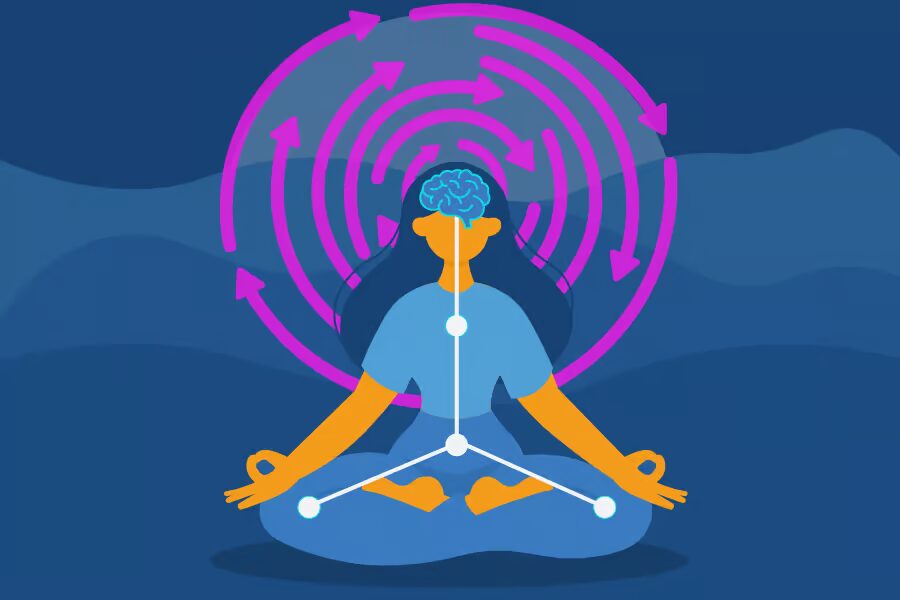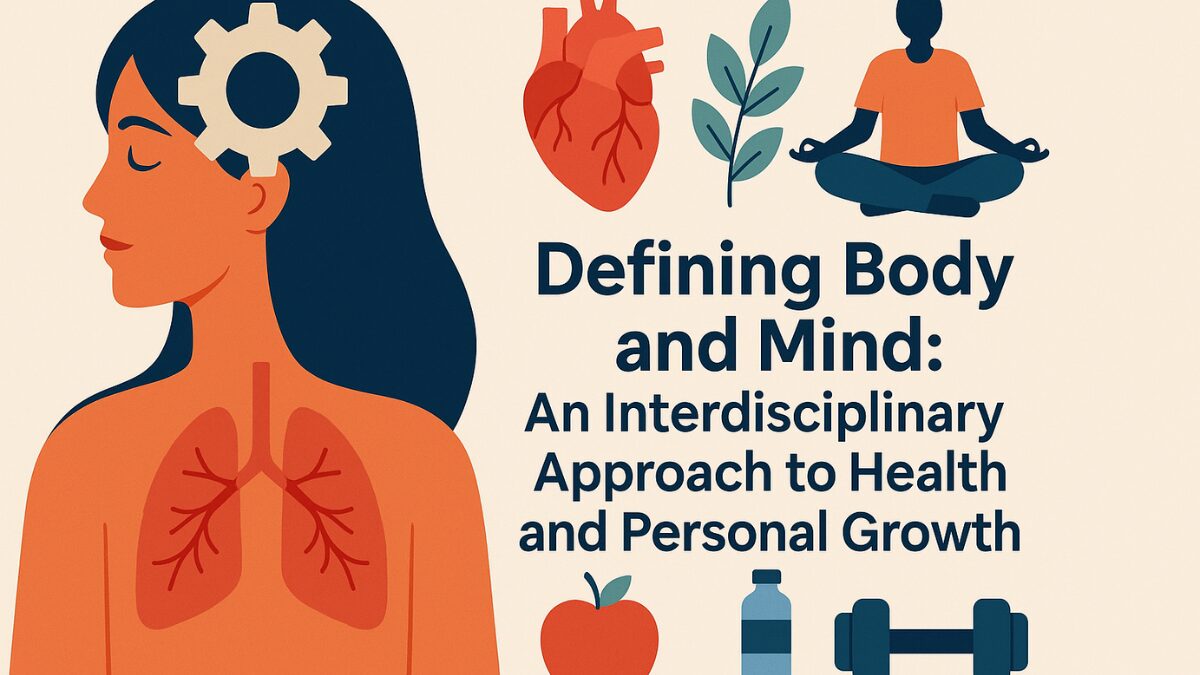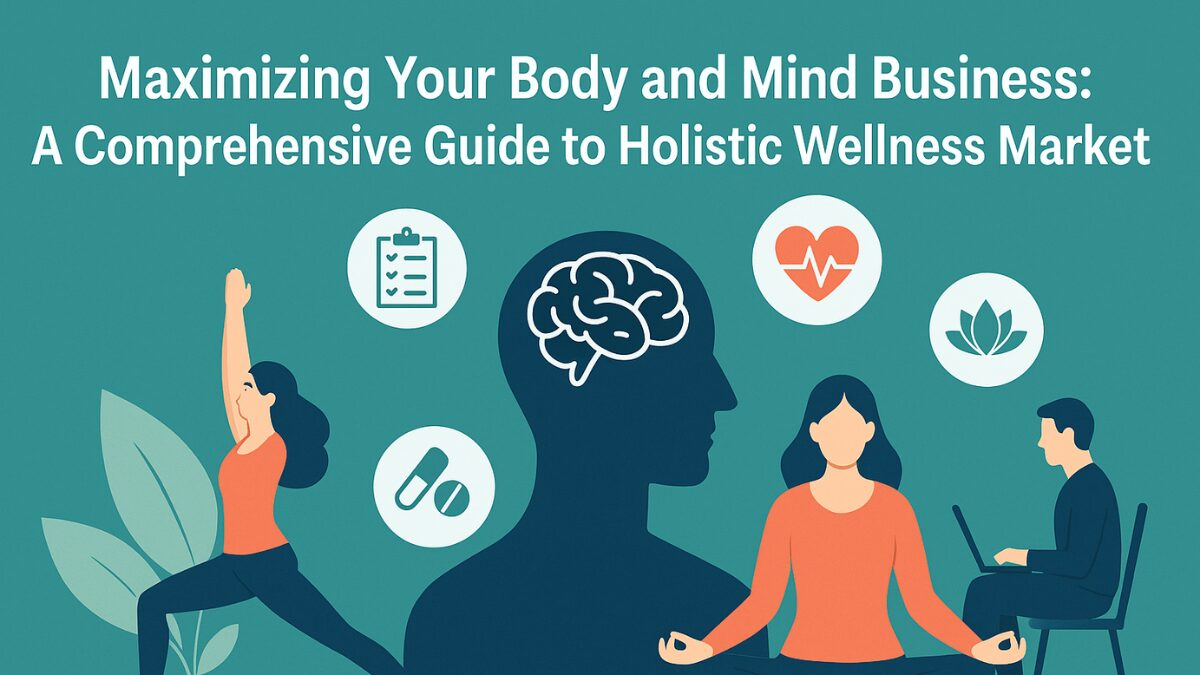Discover how to elevate your well-being with practical, science-backed tips to achieve a healthier body and mind. Improve your lifestyle with daily habits, mindfulness, and balanced nutrition.
also read: https://www.comfortglobalhealths.com/the-impact-of-stress-on-your-mind-and-body-strategies-for-2024/
Introduction
Maintaining a healthy lifestyle is more than just physical fitness—it’s about creating a balance between the body and mind. In today’s fast-paced world, stress, poor diet, and sedentary habits often take a toll on both mental and physical health. If you want to elevate your well-being, it’s crucial to embrace holistic strategies that nourish your entire self. This article shares actionable and realistic tips to help you achieve a healthier body and mind.
Understanding the Connection Between Body and Mind
A healthy mind supports a healthy body, and vice versa. Scientific research has consistently shown that mental stress can negatively impact physical health, leading to high blood pressure, weakened immunity, and chronic illnesses. Conversely, physical health issues can often trigger or worsen mental health conditions like anxiety and depression.

Therefore, to truly elevate your well-being, it’s essential to approach health from both angles—integrating physical activities, emotional balance, proper nutrition, sleep hygiene, and self-care into your routine.
Physical Health: Laying the Foundation
Daily Movement Is Key
Physical activity doesn’t always mean hitting the gym for hours. Simple forms of exercise like walking, dancing, cycling, or yoga can provide immense benefits. Aim for at least 30 minutes of moderate activity most days of the week. Physical movement:
- Increases circulation
- Boosts energy levels
- Reduces symptoms of depression
- Enhances sleep quality
- Promotes cardiovascular and metabolic health
Nutrition and Hydration
You are what you eat. A diet rich in whole foods—such as vegetables, fruits, lean proteins, whole grains, and healthy fats—can drastically improve your physical vitality and brain function. Here are some daily must-haves:
| Food Group | Benefits | Examples |
|---|---|---|
| Leafy Greens | Rich in iron, folate, and antioxidants | Spinach, kale, arugula |
| Healthy Fats | Brain support, hormone regulation | Avocados, olive oil, nuts |
| Lean Proteins | Muscle maintenance, energy production | Chicken, fish, tofu |
| Whole Grains | Fiber, long-lasting energy | Oats, brown rice, quinoa |
| Hydration | Detoxification, digestion support | Water, herbal teas, coconut water |
Aim to drink at least 8-10 glasses of water daily, adjusting based on activity levels and climate.
Mental Well-Being: Inner Peace and Resilience

Practice Mindfulness and Meditation
Mindfulness is the practice of staying present and fully engaging with the current moment. Meditation, breathing exercises, or simply observing your thoughts without judgment helps reduce stress and improve emotional control. Even 10 minutes a day can have transformative effects on your brain’s ability to manage anxiety and increase focus.
Sleep Hygiene
Sleep is often underestimated in wellness discussions, but it plays a critical role in maintaining both mental and physical health. Poor sleep can impair memory, decision-making, and immune function.
To elevate your well-being:
- Maintain a regular sleep schedule
- Avoid screens at least 30 minutes before bed
- Keep your bedroom cool, quiet, and dark
- Avoid heavy meals or caffeine close to bedtime
Strive for 7–9 hours of quality sleep each night.
Limit Toxic Inputs
What you consume mentally is just as important as your physical diet. Limit exposure to negative news, social media overload, and toxic people. Instead, surround yourself with uplifting content, supportive individuals, and environments that promote growth.
Emotional Wellness: Listen to Your Inner Voice

Journaling and Self-Reflection
Writing down your thoughts can help process emotions, reduce stress, and gain insight into patterns that affect your well-being. Try journaling your gratitude daily or simply recording moments of emotional intensity to better understand your mental landscape.
Build Strong Relationships
Social connection is vital. Positive relationships increase happiness, reduce stress, and even improve life expectancy. Make time to bond with family, talk to friends, or engage in community activities. Connection combats loneliness and gives you a support system to rely on.
Holistic Habits to Support Overall Well-Being
Here are integrated lifestyle changes that can help elevate your well-being consistently:
- Create a Balanced Routine
Incorporate time for work, rest, hobbies, and socialization to maintain emotional and physical balance. - Practice Digital Detox
Taking regular breaks from screens can reduce eye strain, improve sleep, and allow time for mindfulness. - Pursue Learning and Growth
Read books, take up new hobbies, or enroll in an online course. Mental stimulation supports long-term brain health. - Laugh Often
Laughter truly is medicine—it lowers stress, improves heart health, and enhances social bonding. - Volunteer or Give Back
Helping others boosts self-esteem and brings a deep sense of purpose and fulfillment.
Sample Daily Routine to Elevate Well-Being
| Time of Day | Activity |
|---|---|
| 6:30 AM | Wake up and drink water |
| 7:00 AM | Light stretching or yoga |
| 7:30 AM | Healthy breakfast |
| 9:00 AM | Focused work/study |
| 12:30 PM | Balanced lunch and short walk |
| 2:00 PM | Creative tasks or learning |
| 5:30 PM | Physical activity or walk |
| 7:00 PM | Light dinner |
| 8:00 PM | Screen-free time, journaling |
| 9:30 PM | Sleep preparation and reading |
| 10:00 PM | Lights out |
This schedule balances mind-body activities and prioritizes wellness while remaining adaptable.
How to Stay Consistent
Consistency is key. You don’t need to be perfect—just persistent. Start small by introducing one or two habits each week. Track your progress with a wellness journal or mobile app. Reward yourself when you hit milestones. Remember, the goal is sustainable wellness, not burnout.
FAQs About Elevating Your Well-Being
1. Can elevating well-being improve productivity?
Yes. Better mental and physical health leads to increased energy, clarity, and motivation.
2. How does sunlight exposure affect well-being?
Sunlight helps regulate your circadian rhythm, supports vitamin D production, and boosts mood.
3. Are supplements necessary for wellness?
Not always. Whole foods are best, but supplements can help if your diet lacks specific nutrients.
4. What role does music play in well-being?
Listening to calming or uplifting music can reduce stress, improve mood, and even lower blood pressure.
5. How does decluttering affect mental health?
A clean, organized space can reduce anxiety and enhance mental clarity.
6. Can pets help elevate mental well-being?
Yes, pets offer companionship, reduce loneliness, and encourage routine and physical activity.
7. Is it possible to elevate well-being without exercise?
Yes, though physical movement greatly helps, mental practices like mindfulness can also improve wellness.
8. How long does it take to notice changes in well-being?
Positive effects may appear within days to weeks, depending on consistency and lifestyle changes made.
9. What are good alternatives to caffeine for energy?
Herbal teas, water-rich fruits, breathing exercises, and movement can provide energy boosts.
10. Can creative expression improve wellness?
Absolutely. Activities like painting, writing, or playing music reduce stress and promote emotional release.
Conclusion
To elevate your well-being, you must nurture both your body and mind. From adopting a nutritious diet and consistent exercise to practicing mindfulness and building meaningful relationships, every small step counts. This holistic approach helps you feel more energized, focused, and fulfilled in everyday life.
True well-being is not a destination but a continuous journey—one that flourishes with consistency, self-awareness, and compassion. Begin with one habit today, and over time, you’ll create a lifestyle that truly supports a healthier body and mind.
also read: https://www.comfortglobalhealths.com/holistic-wellness-industry-analysis-opportunities-for-growth/










